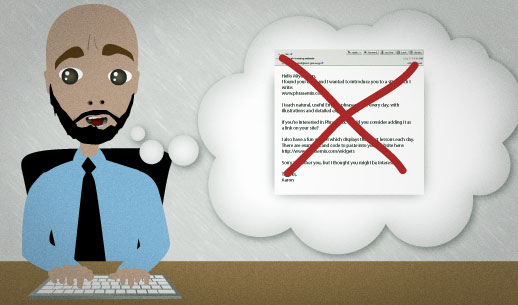“Please disregard my last message. It was mistakenly sent to the wrong group.”
You wrote an email for work and sent it to an email group. After you sent it, you realize that you sent it to the wrong group. You send another message to the same group, which says this.
Please disregard my last message. It was mistakenly sent to the wrong group.
Want Video and Sound? Follow us on YouTube

Please disregard (something)
"Please disregard ___" means "Please don't pay attention to ___".
This is a formal phrase that you can use when there's a mistake or something that you don't want people to notice:
Please disregard the last section. It's not really important for what we're talking about.
We're conducting a test of the emergency warning system. Please disregard the alarm.
the last (something)
The "last ___" means "the one before now". Here are a few more examples to help you to understand how to use it:
- If you sent a message an hour ago, that is your "last" message.
- If you sent a message an hour ago and you just sent another one, the message an hour ago is your "last" message.
What if you sent three messages - one two hours ago, one an hour ago, and one just now?
- The one you just sent is "this message" or "this last message".
- The one you sent an hour ago is "the last message".
- The one you sent two hours ago is "the previous message".
(something) was (done)
The person in the example sent the message. So why didn't he write, "I sent it by mistake"?
When you write that "(someone) did (something)", it puts praise or blame on the person you're writing about. For example:
Paul made a mistake in it.
If you don't put the person's name as the subject, it sounds much more calm and objective, even though it means the same thing:
There was a mistake in it.
mistakenly (do something)
Doing something "mistakenly" means that you do it by mistake.
The opposite of "mistakenly" is "purposefully":
You purposefully said that to hurt me, didn't you?
